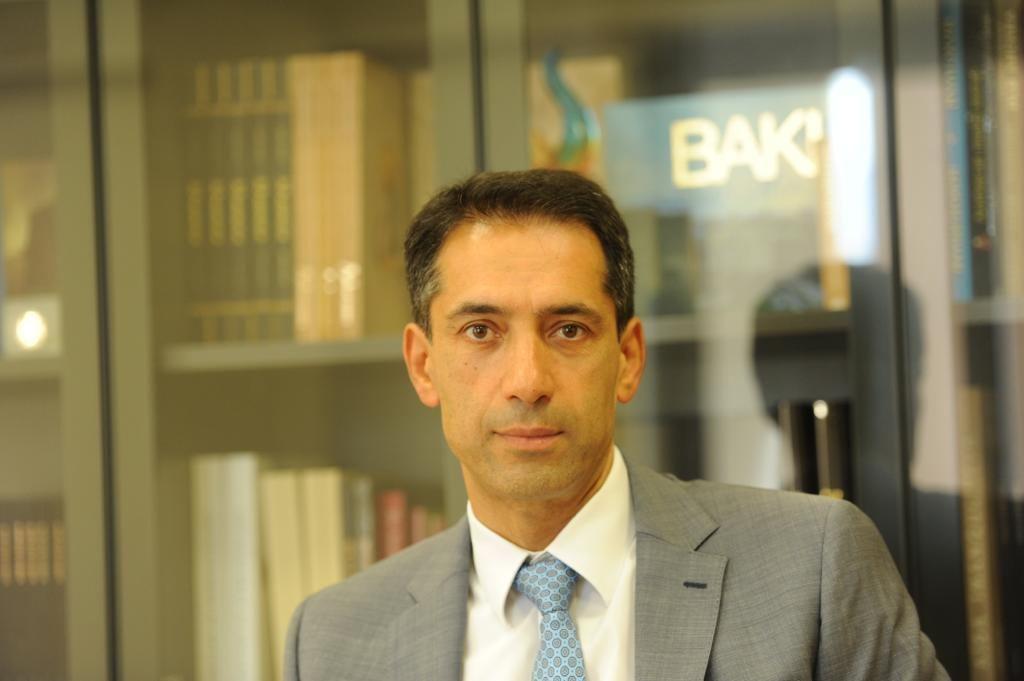Relations between Baku and Paris developed in extremely difficult, "stormy" conditions in outgoing year – ambassador

By Trend
Trend's exclusive interview with the ambassador of Azerbaijan to France and concurrently to the Vatican Rahman Mustafayev.
Question: Recently the Foreign Ministry of Azerbaijan handed over another note of protest to the French Foreign Ministry in connection with the illegal visit of Khankandi by a group of French politicians led the head of the Ile-de-France region, Republican Party candidate in the upcoming presidential election Valérie Pécresse. What reaction do you expect from the French side?
Answer: This visit is an unprecedented and openly hostile action against Azerbaijan, its sovereignty, and territorial integrity. It violates not only the international and bilateral obligations of France but also its national legislation, the relevant articles of its Constitution, the General Code of Local Authorities and the Circular signed on May 24, 2018, by the heads of the Ministry of Internal Affairs and the Ministry of Europe and Foreign Affairs of France, which defined the legal framework for the international activities of local authorities.
The last two documents clearly state what local authorities, prefects, should do in case of violation of the law. They must appeal against the visit in court and invalidate all statements and agreements made during it. In other words, we expect that the official France, which talks so much about the "rule of law" and the "law-based state", will respect and observe at least its legislation.
Local authorities have no right to interfere in foreign policy, defense, and security issues, which are the exclusive areas of competence of the president. This principle is enshrined in constitutional and legislative terms. And this principle is not passive, but active, that is, it presupposes a legal, judicial reaction to any violation of it. Therefore, the lack of reaction of the prefects to this provocative visit will mean that the French legal system is directly dependent on electoral and lobbying campaigns. This is very dangerous, first, for France itself.
Question: What consequences will this provocative visit have on the image of France and bilateral relations with Azerbaijan?
Answer: Obviously, this visit had a negative impact on the reputation of France and the peacekeeping efforts of its president, who recently took a successful initiative in Brussels to organize an informal Armenian-Azerbaijani meeting, which was held in a rather constructive atmosphere. As for bilateral relations, everything depends, as I have already noted, on the actions or inaction of the respective prefect and the subsequent statements and steps of the official authorities. But in general, it will not affect our principled line with respect to Paris.
It is based on a combination of a tough reaction to France's crossing of our "red lines" and a constructive, pragmatic approach to the development of dialogue and cooperation with this country where possible and where it is beneficial to us. We constantly emphasize to our partners here that the responsibility for the preservation and development of bilateral relations lies with both sides. That is why they are called "bilateral".
Question: 2021 was a challenging year in relations with France. What, in your opinion, are the main achievements of this year?
Answer: In the past year, our relations have developed in extremely difficult, I would say, "stormy" conditions. The ideological and information war against Azerbaijan, unleashed by the "republican hawks" last fall, does not subside. Many leading figures of the "Republicans" seem to have returned to the era of religious military campaigns of the 11-13 centuries.
Provocations and pressure on our country from the "clients" of Armenia and the local Armenian diaspora continue at all levels of the central, local, and legislative authorities of France. The authorities, based on pre-election considerations, have taken the position of outside observers and do not interfere in this situation. Although they must intervene, since, I stress again, the national legislation of France is being violated.
But at the same time, due to the new regional order that has emerged in the South Caucasus, the firm position of the president, and the diplomacy of Azerbaijan, French policy is slowly but nevertheless adapting to the post-war, post-conflict situation. Elements that correspond to our new agenda have appeared in it - the readiness to assist in solving such urgent tasks for us as mine clearance, the search for missing citizens of our country, the reconstruction of the liberated territories, delimitation and strengthening of confidence-building measures.
I will single out another important shift in the position of Paris. On November 11, the French Foreign and Defense Ministers in their joint statement stressed the importance of concluding a peace treaty between Armenia and Azerbaijan. I will also note the successful visit of Azerbaijani Foreign Minister Jeyhun Bayramov to Paris on November 10-11 and the positive results of his meetings and talks at the Élysée Palace and the French Foreign Ministry. I cannot fail, either, to mention the more balanced position of the new French co-chair of the OSCE Minsk Group on the post-conflict situation in our region.
It is obvious that many problems in our relations caused by French policy have not been resolved, but on the whole, positive dynamics are observed in its position. The main thing is that in Paris there is a growing understanding of the fact that there will be no return to the previous agenda of "conflict settlement" and that France's positions in our region in the post-conflict period will largely depend on its relations with our country.
--
Follow us on Twitter @AzerNewsAz
Here we are to serve you with news right now. It does not cost much, but worth your attention.
Choose to support open, independent, quality journalism and subscribe on a monthly basis.
By subscribing to our online newspaper, you can have full digital access to all news, analysis, and much more.
You can also follow AzerNEWS on Twitter @AzerNewsAz or Facebook @AzerNewsNewspaper
Thank you!
